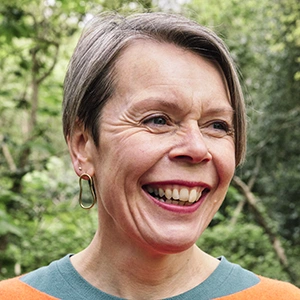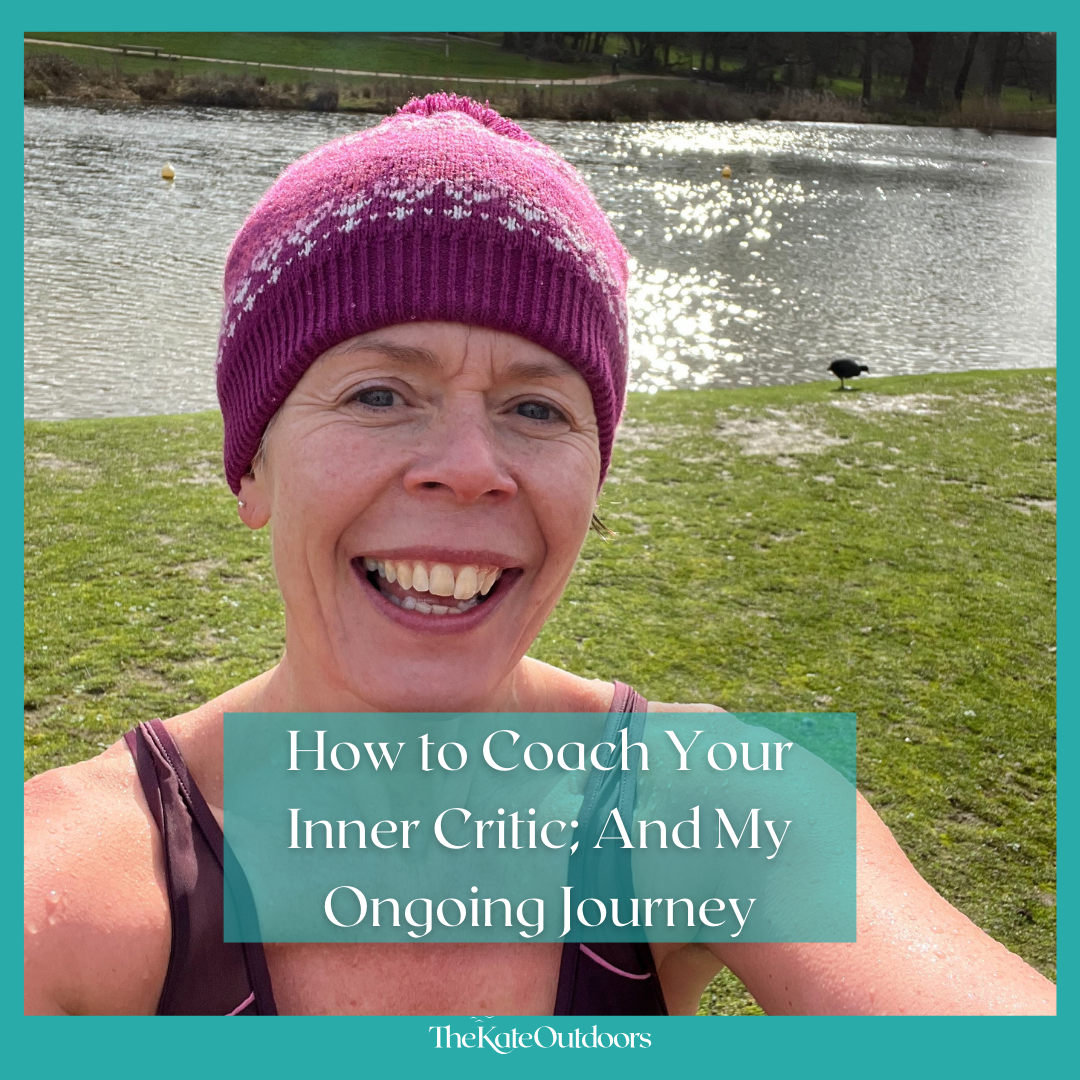Do you ever hear an inner voice that holds you back, puts you down, or seems determined to undermine your confidence? You’re not alone. Many of us experience the inner critic, the critical voice in our head that urges us to play it safe and avoid potential risks. But what if I told you that you have the power to coach your inner critic into a supportive sage instead?
My recent (re)encounter
Despite my love – and some might say – unrelenting ramblings for cold water swimming, particularly for its benefits on my perimenopausal mental health, my inner critic has been preventing me from taking the plunge. My inner critic reminds me that the water at Beckenham Place Park lake will be ‘very cold’, that the weather is ‘grey and cloudy’ (I don’t like), that I’ve ‘got work to do’.
My inner critic overshadows my impending joy by undermining my resolve. It’s been rather loud this winter and I haven’t been to the lake much. A parallel. I realised this link thanks to a recent coaching conversation with a client when I was introduced to hers, and the penny dropped. My inner critic has been blocking me from doing the very thing that supports my wellbeing and I’ve blindly listening to it.
Here’s the thing: acknowledging and coaching your inner critic can be a top-notch life skill.
By learning how to recognise your inner critic’s voice(s), you’ll not only understand why it’s there, but how to disempower it. And by doing so, you’ll;
- Reclaim agency over your choices (and the voices!)
- Stop procrastinating and get motivated
- Be kinder and more compassionate to yourself
What is the inner critic?
It’s that inner voice that criticises, undermines or judges us – we all have one (or some). It’s popular in psychology, psychotherapy and coaching. The inner critic comes from childhood when we heard harsh remarks and criticism from parents, caregivers, teachers, and peers. These remarks became ingrained – we may not even question or notice it as a problem. Over time, those remarks became something to believe and form part of our core beliefs.
The inner critic is also known as negative self-talk, internal dialogue, the gremlin, the judge, chatter.
That voice may produce feelings of shame*, inadequacy, anxiety, guilt and low self-esteem. A harsh inner critic can be debilitating.
How the inner critic works
The role of the inner critic is to be ‘helpful’ and keep us safe – although it’s actions are covert and distorted. I notice through my life coaching work and my personal development that it’s aims are to;
- Protect us from perceived threats or potential harm
- Motivate us (in a warped sense) – that criticism or guilt-induced comments will ‘motivate’ behaviour. Ie, if we realise that our actions fall short of the ‘ideal’, we’ll want to change
- Control us – judgemental and controlling thoughts to cope with fear and uncertainty, providing us with a sense of control, especially when facing challenges
Why is my inner critic so loud right now?
You might notice that the inner critic is at its loudest when ‘it’ feels threatened.
Example (and this is a common theme with the people I work with)
You’ve been promoted, or perhaps you’re leading a new team – and it’s a big challenge. You feel out of your depth and question your abilities “I don’t think I’ve got enough experience”, or, “I don’t think I can do what’s expected of me”. You tell yourself this so often that it becomes habitual, like background noise playing over and over in your head. It’s infiltrated and playing on your vulnerability; it starts to impact your actual ability to do the job, encroaches your personal life and left to go unchecked, it might even sabotage your chances of success. Welcome to the edge of your Comfort Zone!
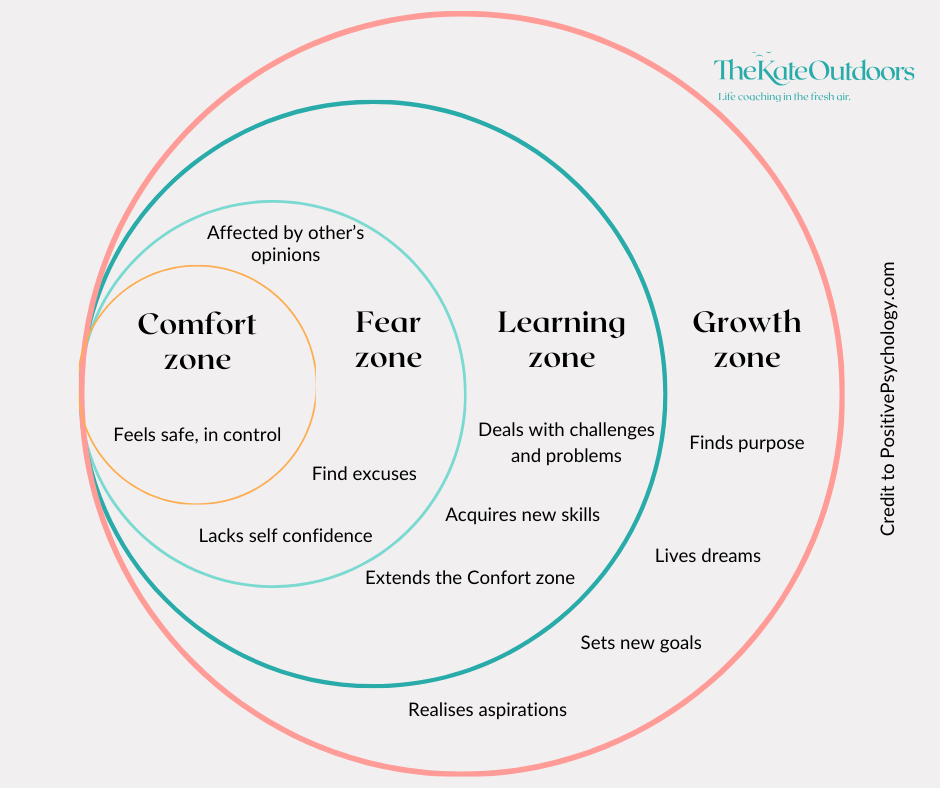
Leaving the Comfort Zone
Your Comfort zone is your safe, familiar territory. It enables you to be good/really good at what you do – especially in your job. You’re considered ‘expert’ here, top of the game. And yet after a while it might feel boring here – you know this ‘stuff’. Yet, when you stretch yourself, you move to the edge of or even leave your Comfort Zone. That can feel scary, uncertain, vulnerable – a risk. Failure might seem real – and it’s not what you’re used to. If you’re a leader, you may no longer be ‘expert’ here although of course, you have expertise. Those feelings of doubt, uncertainty and fear validate the essence of inner critic, whose role and purpose is to protect you from perceived threats or potential harm.
And yet venturing beyond your Comfort Zone sparks growth, through learning and stretching your boundaries. Tara Mohr in her book of the same title, calls this ‘Playing Big’ and this book is recommended if you’d like to ‘stop playing small’. Or read more about Growth Mindset in a previous blog post.
How to tame your inner critic
- Treat it as a foe. Not recommended! To silence the inner critic is to send it into overdrive and reinforce its position, in my opinion and that of psychologist Nick Wignall. In his article HERE, he says,
When you treat your thoughts like an enemy, that’s how they’ll increasingly feel.
- Treat it as a friend.
By befriending your inner critic, you shift from resistance to acceptance, creating space for a constructive and compassionate dialogue. Introduce your Inner Coach to your Inner Critic using these 4 steps.
Exercise 1
- Welcome it, by acknowledging its presence
- Listen to it. Write out the words/phrases it says to you in the moment
- Recognise its intentions in its messages; Understand that it’s trying to protect you from perceived threats, albeit in a not-so-helpful manner
- Introduce your inner coach to your inner critic. Create a new, compassionate collaboration
Like practising anything new it gets easier the more you take time to notice it’s presence.
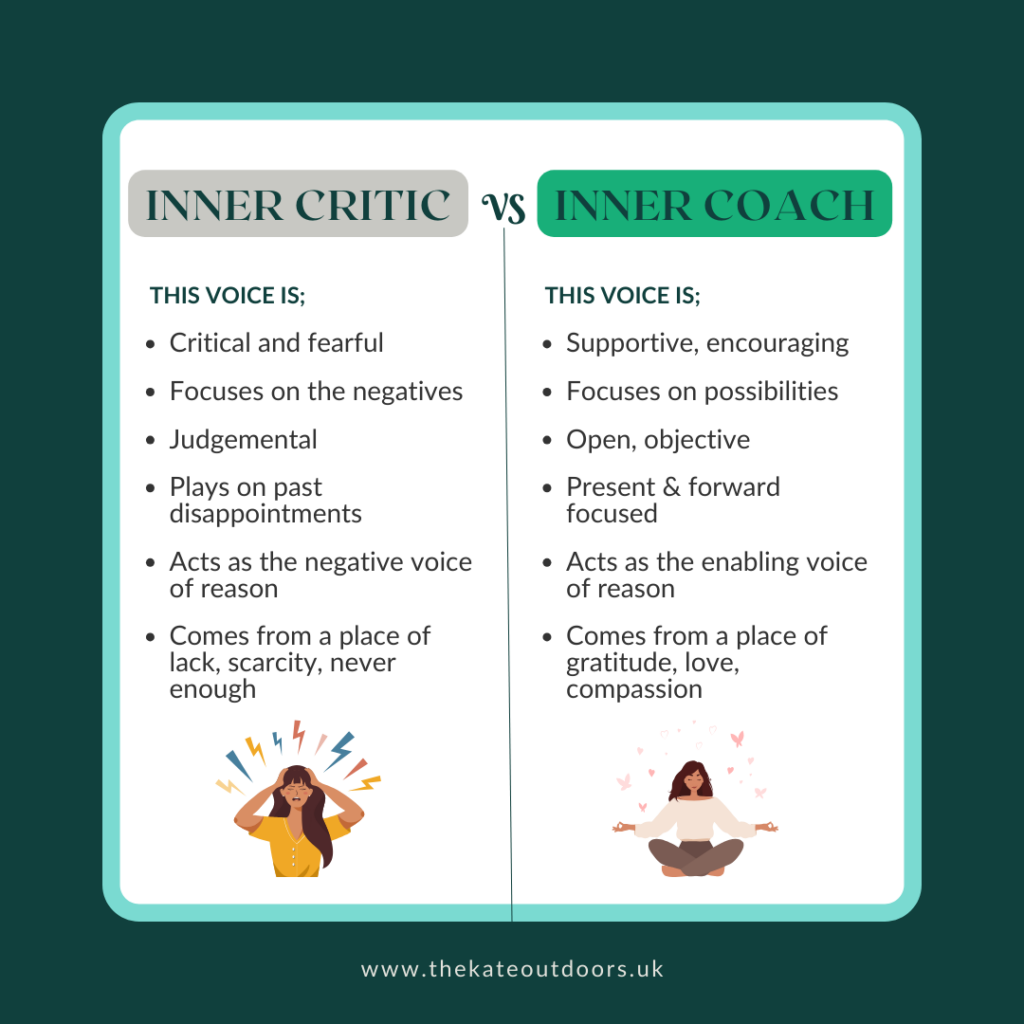
Exercise 2
For something more creative and playful, personify your inner critic and identify it in detail. Questions might include;
- Does it have a name? Is it even a person? Someone you know?
- What does it look like? Distinguishing features?
- How does it sound? Does it smell?!
- What’s their posture? Standing or sitting? Tall or short?
- What are they wearing?
I’ve used this exercise in coaching a few times and it can be really moving. Great for perspective, and disarming the potential power the inner critic is holding.
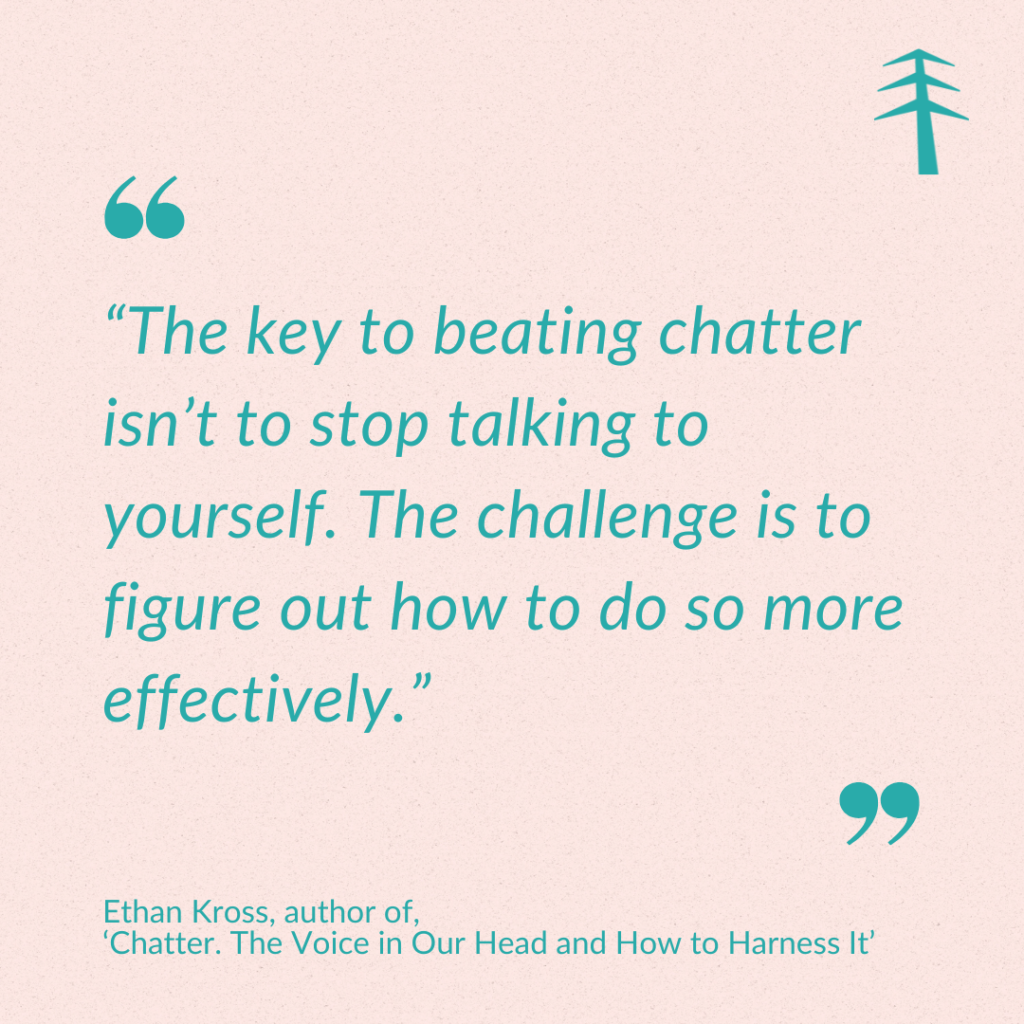
So by understanding that the critical voice in our head has a purpose and that it can be used constructively, we can start to recognise it and reduce it’s potency, gradually shifting the dynamic with your inner critic to something more useful.
For me, I realise I’ve been ignoring my inner critic and it’s time to turn that around and pay it some attention. Reflection after each coaching session and having a trusted coaching supervisor also help. I talked this week to my supervisor about the challenge of the chatter and the parallels in my coaching work. The concept of my inner coach to collaborate with my inner critic means I reclaim agency and perspective, whilst maintaining my peace – which is exactly what’s happened now.
Ultimately, I’m choosing whether to swim at the lake or not – this time, from a place of reason. Part of the bigger picture; nurturing my inner coach is all about my personal and professional development and self-compassion. It’s ongoing, slow at times but transformational.
And my inner critic? I’ll be checking in daily for the foreseeable!
If you’re ready to embark on this journey of self-discovery, and need an ally, consider contacting me. Book your free call HERE.
*For more resources about shame and vulnerability watch Dr. Brene Brown’s Ted Talk HERE. I’m currently reading her best-selling book, ‘Daring Greatly’
And I’ve just bought the book mentioned above by Ethan Kross; ‘Chatter. The Voice in Our Head and How to Harness It’
Thanks for reading.
